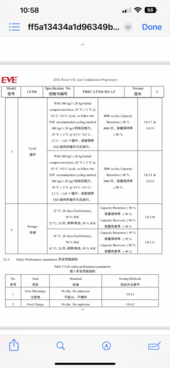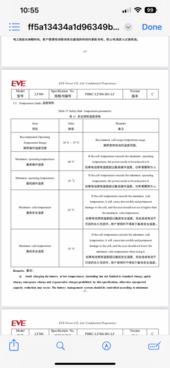Is there any battery that doesn't deteriorate from sitting in storage? I plan on using them in a camper for a few weeks a year and maybe a few other weekends. So, if you look at a whole year I'll use the batteries just a few times out of the year. Are there any batteries out there that don't lose their charging/discharging capabilities from sitting unused? I read that LIFEPO batteries last 10 years but aren't they like all the rest that if they are unused they deteriorate? I've read both but if I am only going to get 10 years out of them it may not be worth it. I just need a battery to keep the fridge running in between generator charges.
Or, just get a lead acid battery and keep it on a battery maintainer.
For a few times a year, lead acid is cheap.
But lead acid doesn't last that long, no matter how well you take care of them. LFP batteries should last decades
AGM lead-acid is simple. Not cheap, costs as much as LiFePO4.
It will run fridge between generator charges.
Before leaving unused for months, fully charge and disconnect from all loads.
AGM self-discharge is very slow, and can take extreme cold when stored at full charge.
Cycle life and float life varies with cost.
I've got SunXtender, which spec 700 cycles to 70% DoD and 10 year float life, for my grid-backup system.
I bought some 104 Ah 12V SunXtender 15 years ago, occasionally charged but didn't try using until they were 11 years old. They tested 40% capacity. I used the for testing inverter/chargers without heavy load.
I think AGM is ideal for use several times a year in a camper.
But not ideal for generator charge, because after bulk they should get an absorption charge of a couple hours. PV panels are better for that (with no load unless enough PV to supply load too.) That full absorption charge should be done before leaving for an extended time.
Is your fridge propane with AC option? Or 12V or 120V compressor fridge? I propane, either power with propane or replace with compressor type.
LiFePO4 is better with generator and no source for slow absorption because it can take 0.5C and doesn't need to reach 100% SoC.





